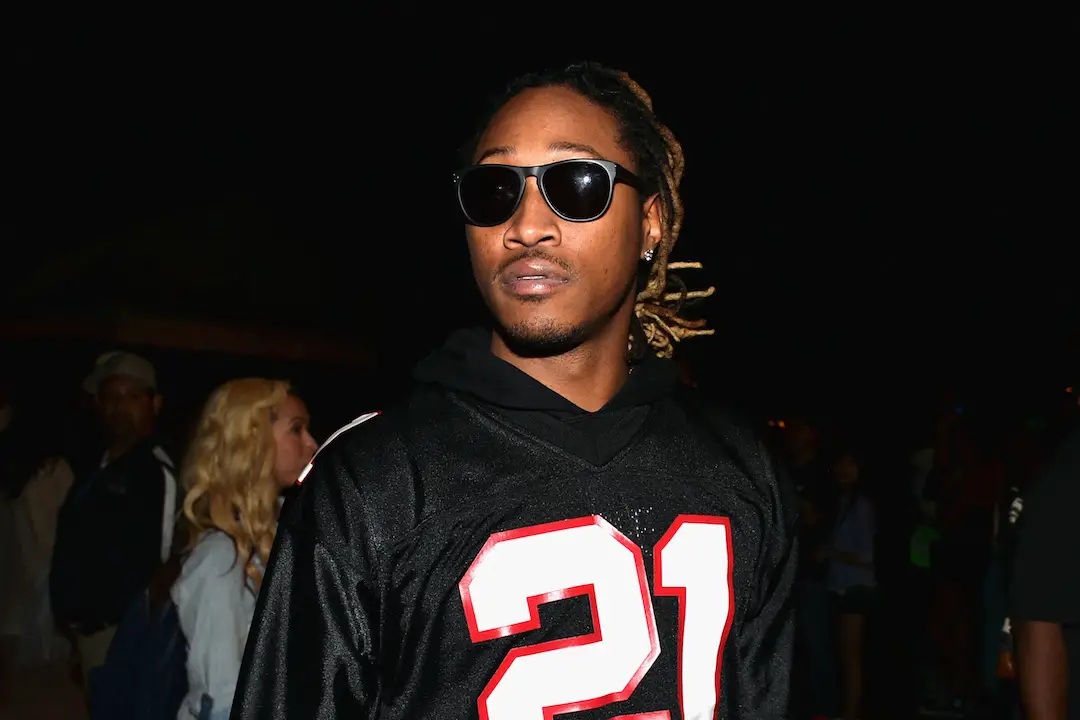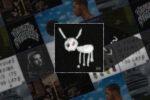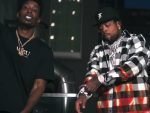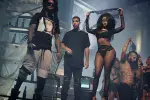Understanding Future
The rapper has made a name for himself by helping pioneer a new sound in hip-hop, but his popularity is likely short-lived.
By Daniel Wilcox, University of Texas at San Antonio
Rap supremacy is a funny thing.
When you think of the greatest rock bands of all time, the list hardly changes. The Beatles hold sway historically, and almost everyone that wields a guitar today owes a debt to Led Zepplin. Other acts have emerged over the years, but the titans are always singularly revered. There’s a permanence to rock royalty.
Hip-hop, not so much. Being the greatest rapper is akin to being the leading rusher in the NFL. One season you can run for 1,500 yards and find yourself atop everyone’s fantasy draft, only to see your name fade into obscurity the following autumn.
Rap greatness is similar in its ephemerality. Consider this list of greatest rappers by year; would you ever see a similar list about rock guitarists? Critics may disagree about overall merit between musicians, but you’d never see someone say that Dave Mustaine was the best guitarist of ‘85, followed by Kirk Hammett in ‘86. Rock gods are always gods, period.

So, in the impermanent pantheon of rap, we tend to be fickle about who we deify. It’s not entirely our fault, as we’re mostly left to the artists themselves to tell us who’s tops. When Lil Wayne proclaimed himself “Best Rapper Alive,” everyone sort of just went along with it. Listeners had their reservations of course, but who else was there to take the throne?
Seemingly out of nowhere, 2016 found its best rapper alive embodied in Atlanta native, Future. There’s debate to be had here, and it’s all welcome, but you have to ask yourself: Who is more celebrated right now than Future? Hell, he’ll be the first to tell you that everyone else is playing from behind.
Per his interview with MTV, “You can ride the wave, but you not gonna be the wave. I am the wave.” It’s one thing to proclaim yourself the greatest rapper alive; it’s something else entirely to view yourself as a force of nature.
You can’t fault his confidence, though. Future plays packed shows nightly; he stuffs iTunes with new material constantly, and he consistently owns tracks he’s featured on. Not since DMX in the 90s has a rapper had the gumption to release a new studio album every year for three consecutive years, yet Future’s done just that. He made Drake seem like a mere formality on their recent mixtape, his verses and style more suited to the production.
What’s more, Michael Phelps revealed last year that he always blasts Future’s “Stick Talk” in his headphones before every race. When the most decorated Olympian in history uses your music to get pumped before winning gold, you must be doing something no one else is.
But how good is Future really? I ask myself this every time one of his cuts finds its way onto my Pandora playlist or rips through the club’s sound system. “Fuck Up Some Commas” starts playing, my friends get hyped and meanwhile I’m trying my damndest to make sense of what Future’s trying to tell me between hooks.
It’s frustrating, as between his mumbling and his employment of Autotune, half of what he says is indiscernible.
He’s not just fucking up commas; he’s going after verbs, adjectives, periods and any other part of the English language within his blast radius.
What I can procure from his lyrics is a mixture of drug exaltation and wealth mismanagement, all standard fare since the days of 90s gangsta rap. All of this is being sprinkled over the barrage of hi-hat cymbals and snare kicks that make up today’s all-too-typical trap beat.
Quick aside: Seriously, this trap shit is everywhere now. You can only imagine my indignation at hearing the great Eminem rapping over a trap beat on Dr. Dre’s latest release. What has the world come to?
On the surface, Future brings nothing new to the table. At best, he’s typical of the state of rap today. At worst, he’s contributing to its ruin. His lyrical approach has been done a thousand times before by rappers of approximate talent, and the flavor of his production is indicative of the beat fetishism common in contemporary rap.
The rise of Kendrick Lamar in the last few years seemed to indicate that hip-hop was reverting to a style not present since the early 90s. “To Pimp a Butterfly” harkened back to the days of Rakim and Nas, where the message of the lyrics and the value of storytelling were paramount. More importantly, the album garnered the mainstream attention that similar artists like Lupe Fiasco and Mos Def could never quite muster. It appeared as though rap had turned a corner.
Yet, amid K Dot’s acclaim, Future’s name remains omnipresent, and it’s his music that brings people to their feet. This once again informs the question, How good is Future really? Why is he this popular?
It wasn’t until I heard “Low Life,” Future’s joint with The Weeknd, that Future started to make a little more sense to me. In a surprising move, Future dials it back on the Autotune, allowing his lyrics to be heard more clearly. With the usual warble in his voice gone, I felt like finally Future had a message.
And it’s a troubling one. Throughout the track Future repeatedly mentions his casual drug use. Yet his tone is not celebratory; on the contrary, it seems he’s mourning his dependence, likening it the cycle of poverty. Tragically, the substances that are fueling his creativity and success might be undoing him, and he doesn’t have an answer on how to stop it. It’s fitting that he should cut a song like this with The Weeknd, who similarly speaks to a personal sense of alienation that he brings to heel with constant drug use.
Indeed, it may be that what I’m hearing isn’t braggadocio, but rather a plea for help.
But what’s the precedent for this? The machinations that have enabled the success of an artist like Future can likely be traced to one man, Kanye West, who himself is a former claimant to the title of “Greatest Living Rapper.”
You see, kids, before Kim Kardashian devoured his soul, Kanye West was a revelation. In 2008, Kanye dropped “808s and Heartbreak,” as distant from the norm as a rap album could get. In contrast to hip-hop conventions of the mid-2000s, Kanye elected to allow listeners a more vulnerable view of the artist. At a time when Lil Wayne and T.I. were still pushing the crackhouse aesthetic, Kanye dared to share his struggles with loneliness and lost love.
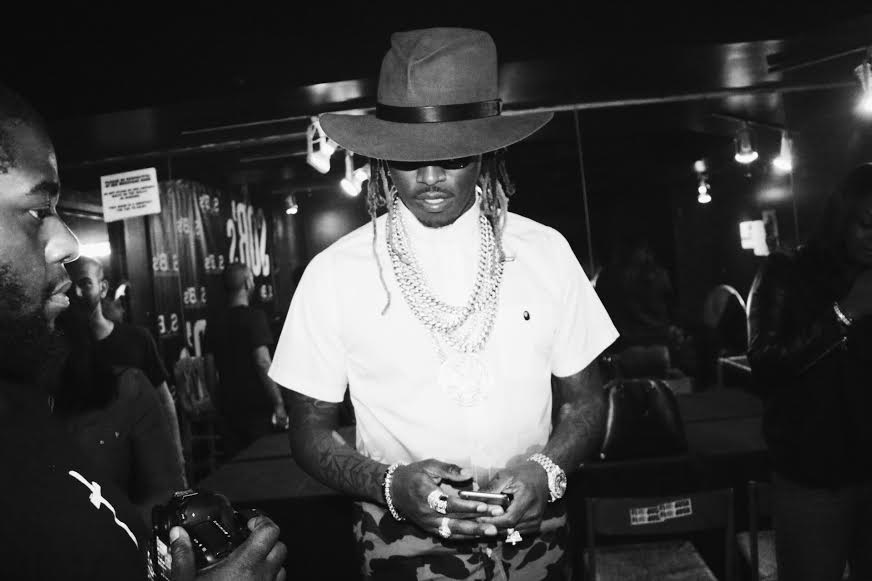
“808s” catalyzed an acceptance of more personal, sensitive hip-hop. In the years that followed, Yeezy’s example facilitated the careers of Kid Cudi, Childish Gambino, Frank Ocean, The Weeknd and, by extension, Future.
Future, while ostensibly a proponent of hackneyed rap tropes, can possibly be viewed as the inevitable fallout of a post-“808s” era, one in which rappers use the medium to transcribe their discontent not just with socio-economic status or racial issues, but with the troubles within.
Or it could be that Future really is just rapping about money, hoes and weed. His body of work is by no means a small sample size, but it’s also eclectic enough to make conclusions difficult to come by. Maybe the guy just likes making club bangers, lyrics be damned.
Whatever Future’s doing, it’s working. The best rapper in the game is characterized as the one who’s doing something that no one else is doing, while simultaneously channeling the zeitgeist of the culture at large. By most definitions, that’s Future.
By adopting the moniker “Future,” he’s proven to be in tune with the optimism of a generation raised during the Obama administration. He certainly believes he’s not done. But if you’re like me and you just can’t seem to pull yourself onboard his train, fear not; if history is evident of anything, the Greatest Living Rapper title is always up for grabs, and no one can hold onto it forever. I’m not saying that Future is doomed to fall off completely, but hey.
Big Sean is sounding pretty good these days.


